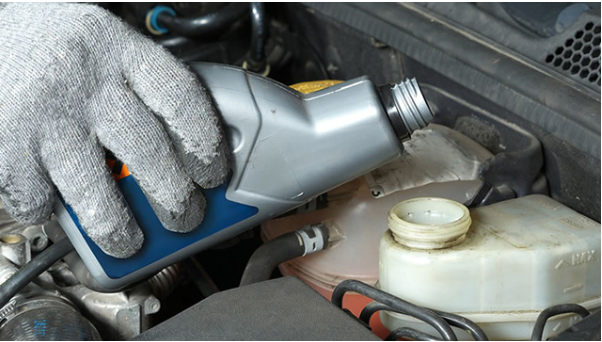The Impact of Cold Weather on Brake Fluid

As the winter season takes hold, it becomes necessary to explore a subject that is often overlooked– brake fluid. This unassuming yet vital hydraulic component plays an important role in ensuring the safety and proper operation of a vehicle, especially when cruising on wintry roads. As temperatures drop, brake fluid's behavior undergoes a transformation from a reliable liquid to a denser substance that can impede the efficiency of braking mechanisms.
Cold Weather's Effects on Brake Fluid
1. Reduced Brake Performance
While brake fluid does not succumb to freezing as some other fluids might, it tends to thicken or congeal at temperatures below -22°C (-30°F). This change in viscosity can compromise the fluid's ability to transmit the necessary force from the master cylinder to the wheels, leading to dangerous consequences. Specifically, increased braking distances might be a problem, accompanied by increased resistance in the brake pedal.
In modern vehicles equipped with Anti-lock Braking Systems (ABS), the dense hydraulic fluid may fail to effectively modulate brake pressure, affecting the vehicle's capacity to respond optimally to slippery surfaces.
2. Degradation of Brake Lines
Brake fluids commonly in use, such as DOT 3, DOT 4, and DOT 5.1, are classified as hygroscopic. This hygroscopic nature makes them prone to moisture absorption, potentially resulting in corrosion within the brake lines. In instances where the brake line sustains significant damage, it can allow water to get into the braking system.
Damaged brake lines combined with compromised hydraulic fluid can significantly reduce your braking effectiveness, posing a safety hazard whether you're navigating black ice or other challenging conditions.
3. Brake Overheating
Ironically, winter weather conditions can cause hotter brakes and consequent brake fade, affecting stopping power.
The presence of any moisture within the brake fluid can contribute to the formation of air pockets which requires you to apply greater force on the brakes for it to work properly.
As the brake pedal gets prolonged engagement, the braking system's temperature can substantially rise, resulting in overheating. This can happen even in frigid weather. This can result in accelerated wear of your brake pads, potential warping of the brake rotor, and unwelcome side effects like squeaky brakes or smoke emanating from the brake pads.
So, can a transition to an alternative brake fluid resolve these challenges?
Is Specialized Cold Weather Brake Fluid Necessary?
Unlike other automotive fluids like washer fluid, brake fluid undergoes meticulous formulation to preserve its viscosity across a broad temperature spectrum. With the exception of very low temperatures reaching -40°C (-40°F), the likelihood of brake fluid freezing remains exceptionally remote.
However, strict adherence to the manufacturer's recommendations concerning brake fluid is essential to ensure the adequate lubrication of brake components in freezing conditions. Monitor brake fluid levels and quality, and follow a regular maintenance schedule to preserve the reliability of your car’s braking system even in chilly winters. If you do this, your vehicle's braking system will continue to be dependable even in the coldest of days.